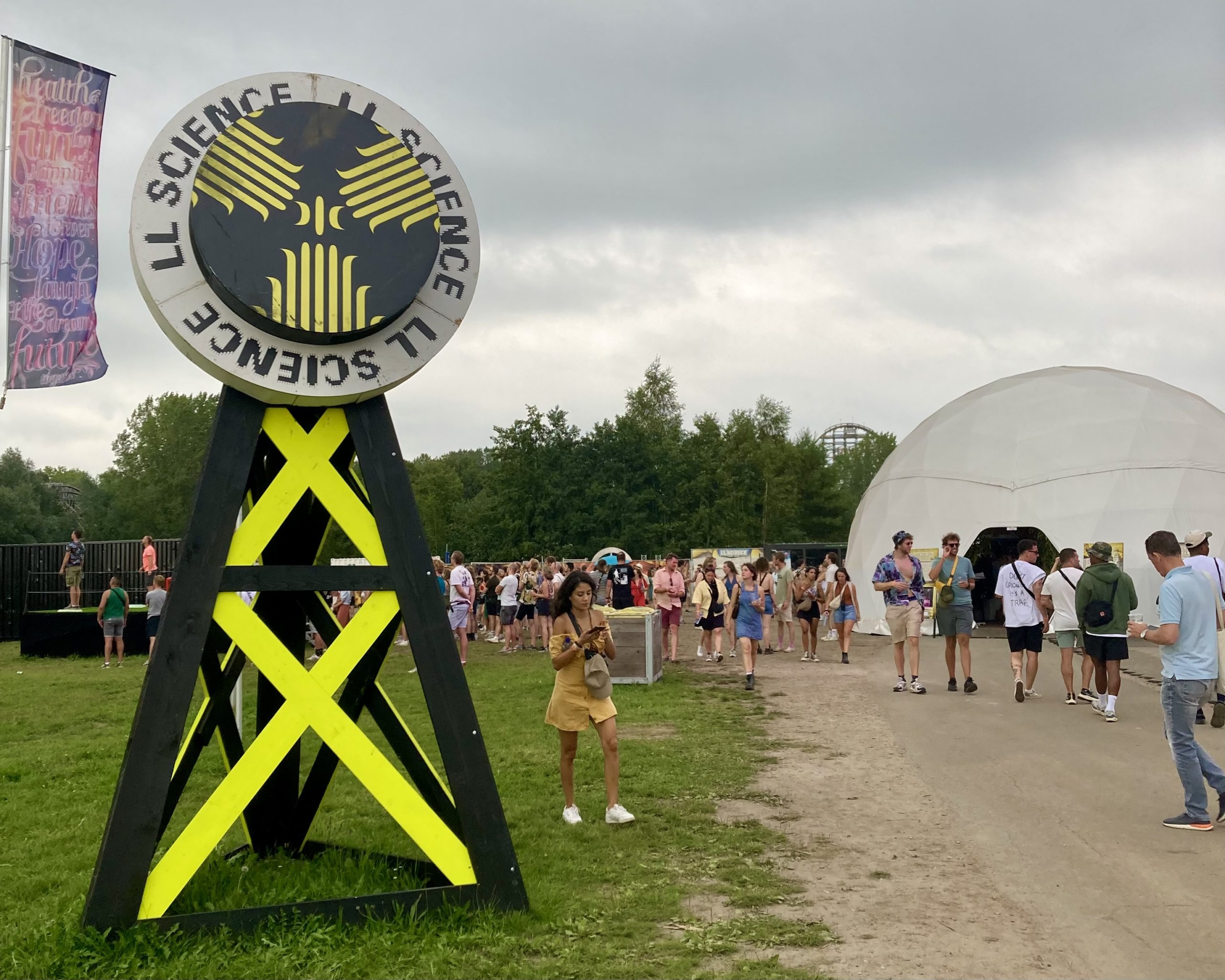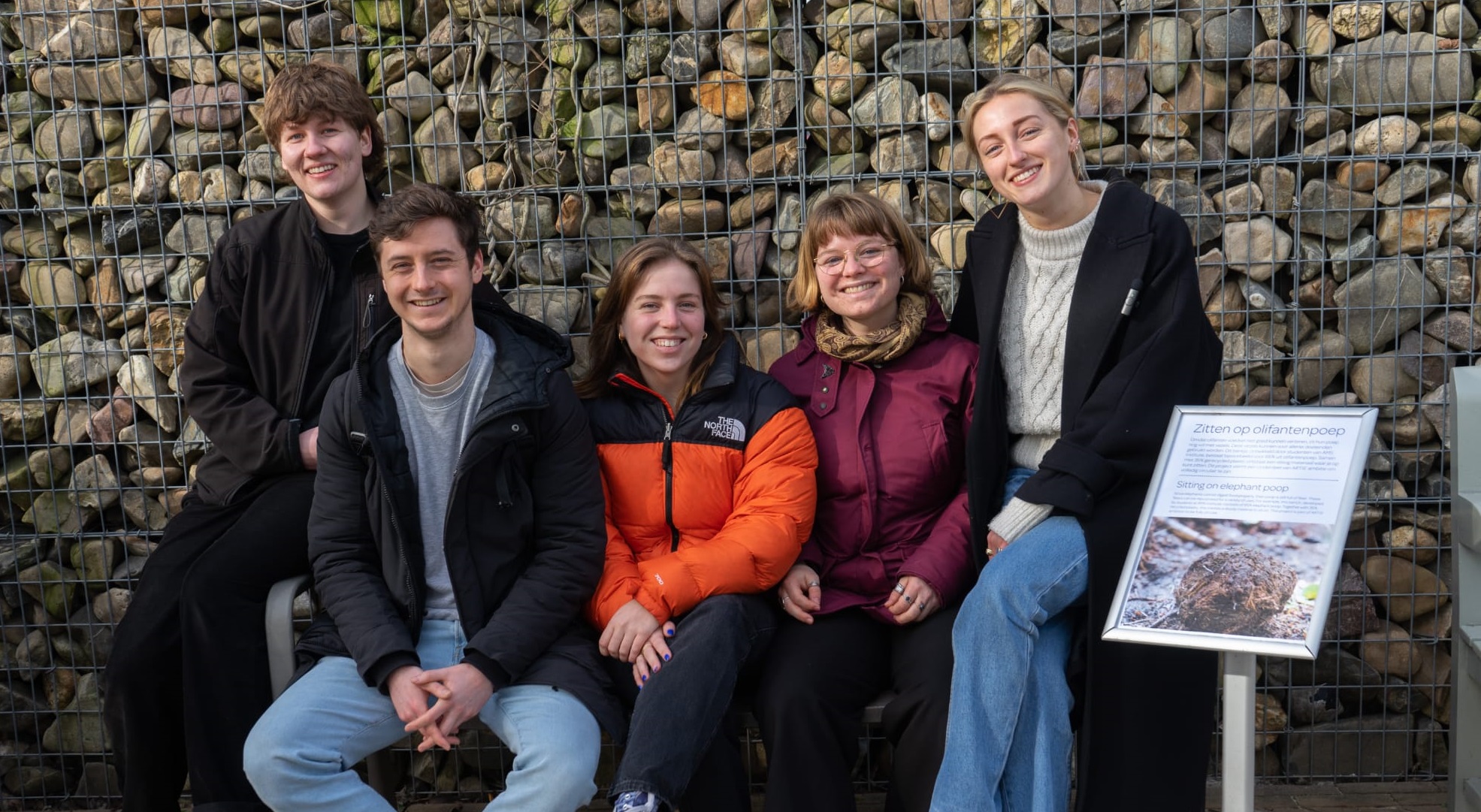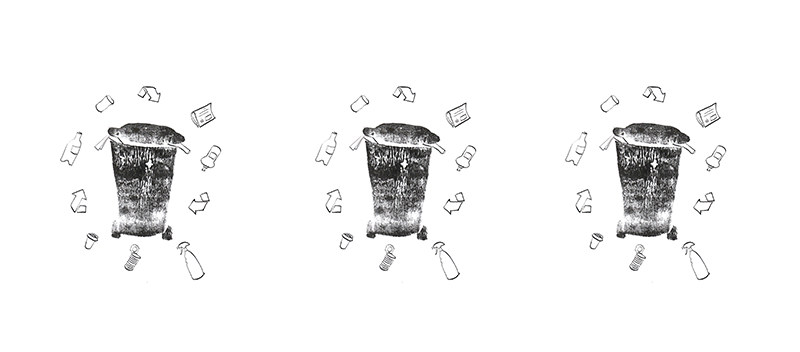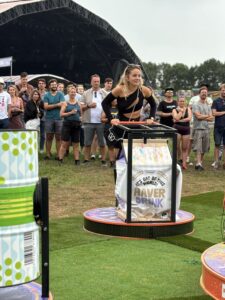
Bleep, dang, crghhhhh, doodoodooo, bleep, dang. In the corner of Lowlands Science, near the large Alpha stage, a very spirited game of life-sized recycling is going on. The game focuses on what actions are required to make plastic packaging suited for recycling. Removing foil caps, for example (rip it), removing leftovers from drinking cartons (twist it), reducing the packaging’s size (crush it) and throwing it in the trash (bin it). Each action comes with a unique sound effect, which increases in frequency as the game progresses, creating a cacophony noise. If your reactions are too slow, it is game over.
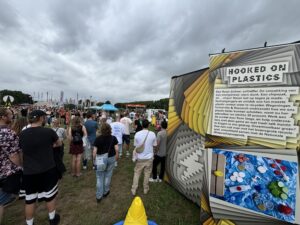
The game is a huge success. Half of Lowlands wants to play the XXL packaging game. Directly next to the game is the ‘Hooked on Plastics’ base, for which there is equal enthusiasm. PhD candidate Rick Fransman and a team of colleagues and volunteers study the festival audience’s knowledge on how to correctly separate plastics. It is part of a more extensive study on plastic recycling called MUNITION.
Rubber duckies
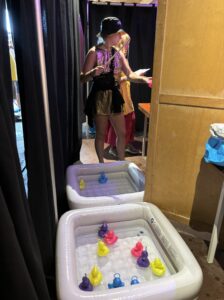
Research on festival grounds must have some entertainment value to lure participants. Fransman’s lab shows a short introductory video on separating waste, after which the visitors get to cast a line. There are four research booths in which test subjects must catch brightly coloured duckies in an inflatable pond. The ducks are numbered, which corresponds to various types of packaging and waste. The key question is: Where does it belong? Is it in the plastic, metal, and drinking cartons bin or in the general waste bin? Examples include an empty deodorant can, a wad of aluminium foil and a half-empty squeeze bottle of honey. Plus, a really tricky item: the plastic net used to hold several lemons. Although it is made out of plastic, it can cause the machines to clog and must, therefore, be discarded as general waste.
Participants compete for a spot in the rankings posted at the lab entrance. Those who score the full 20 points earn a bright yellow ducky cap, which is immensely popular among the Lowlanders, as shown by the fact that Fransman is continuously accosted and asked about his headdress. Getting a high score is far from easy; only seven festival guests managed to score 18 points or more by the end of Friday, and only one won the very desirable cap.
Data quality and alcohol intake
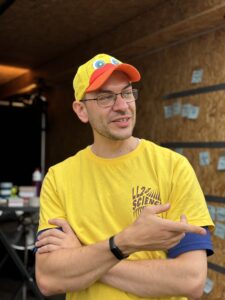
But Fransman is the true winner. The enthusiasm for his research far exceeds his expectations. By the end of the relatively rainy Friday, over 100 participants have joined the game, with two more sunny festival days ahead. ‘Fortunately, I decided, just before the weekend, to erect four instead of the planned two booths. We would otherwise never have been able to accommodate all the walk-ins.’
When asked about the data quality, he laughingly admits that as the day progresses and alcohol intake increases, the quality is somewhat reduced. ‘We will take this into account in our analysis. Moreover, the loss of quality is more than compensated for by the sheer quantity. One afternoon already yielded more data than I had hoped to get in an entire weekend.’
That good yield also applies to others who have joined the 2024 Lowlands Science Fair. Avans University College has acquired just under 90 vaginal swabs in a single afternoon for Viva La Vaginoom. ‘Finding this number of people willing to contribute usually takes much longer. But the Lowlands crowd does not seem very bashful’, the researcher says.

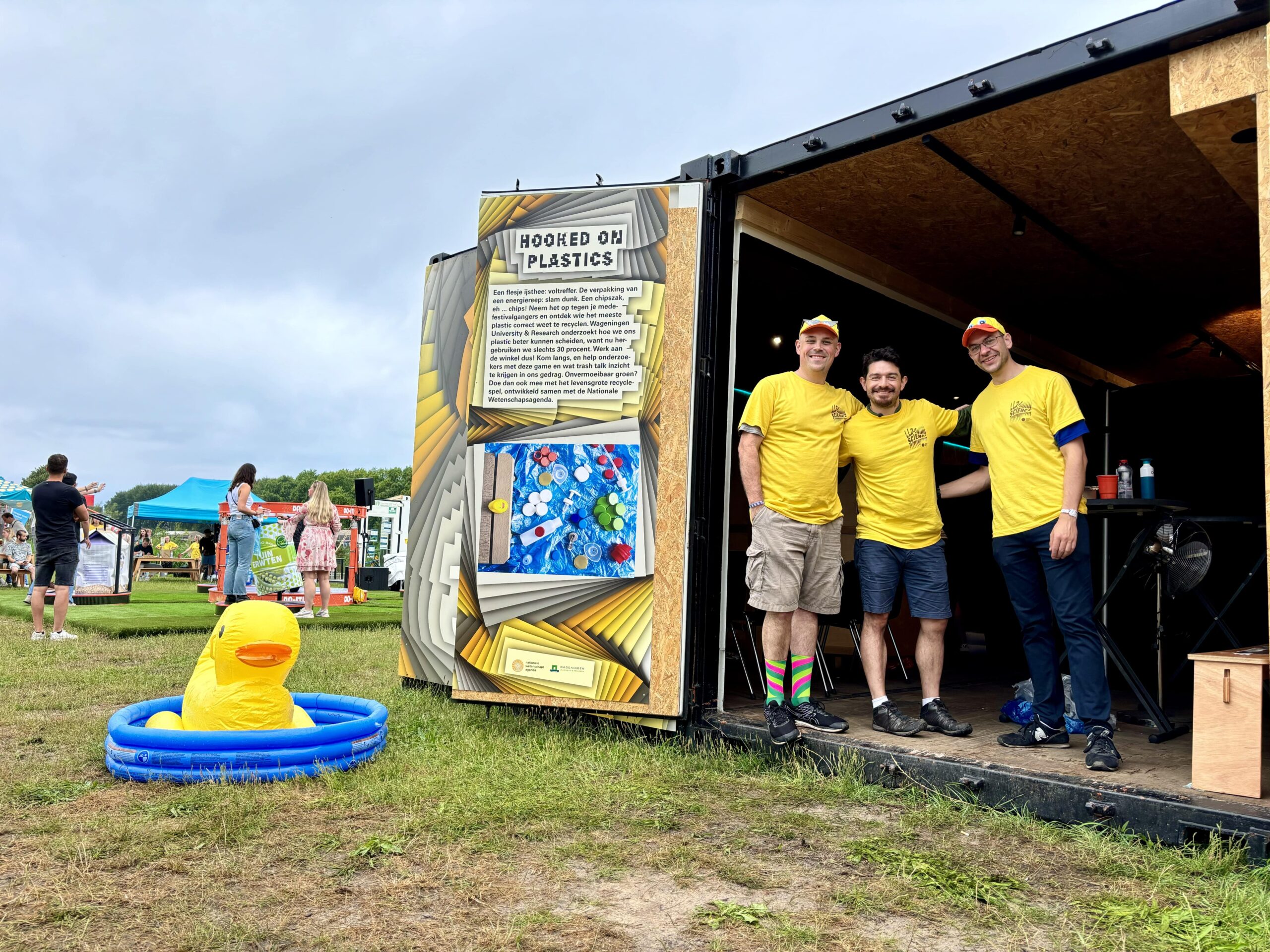 PhD student Rick Fransman (on the right) in his Lowlands lab.
PhD student Rick Fransman (on the right) in his Lowlands lab. 